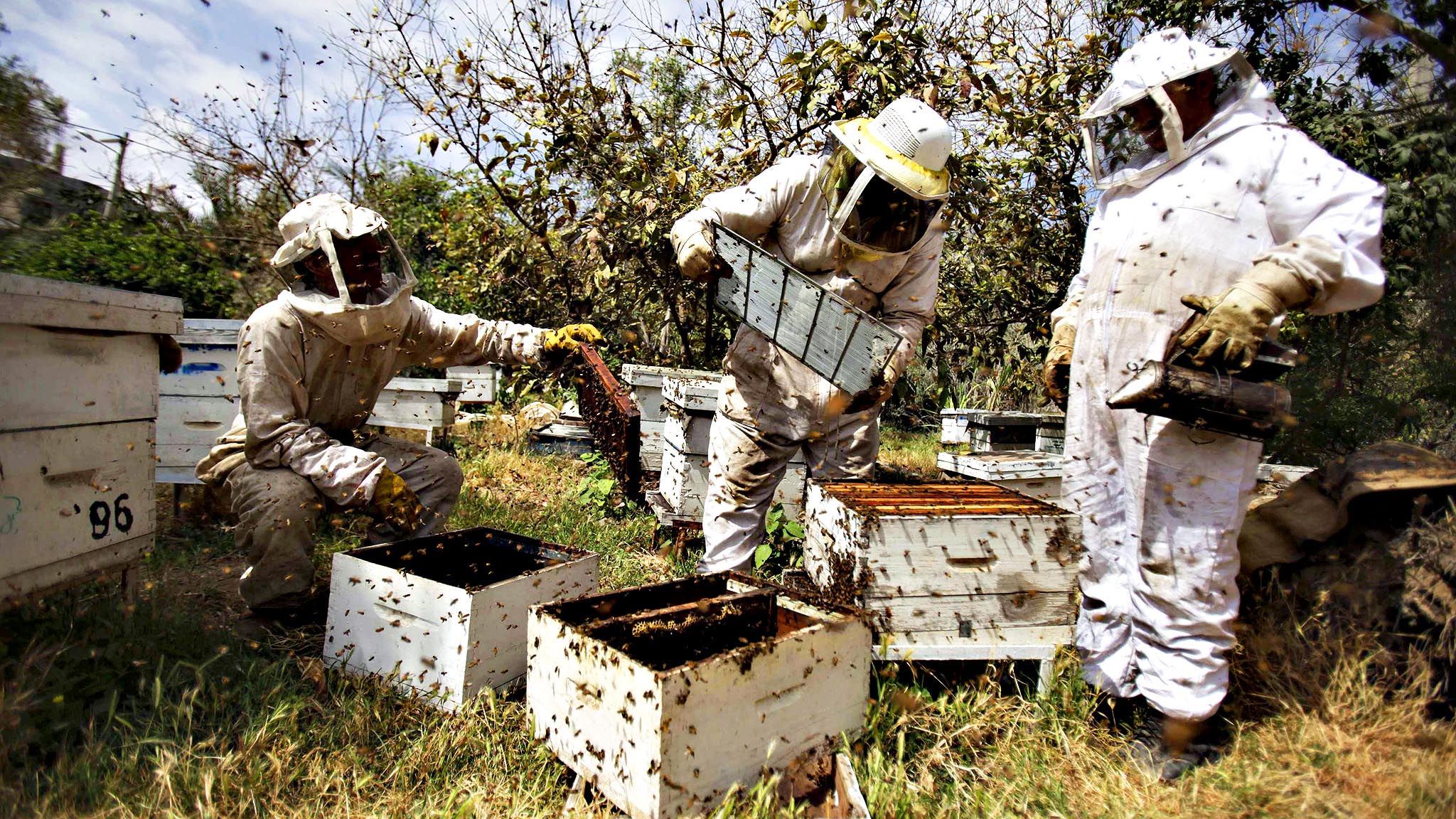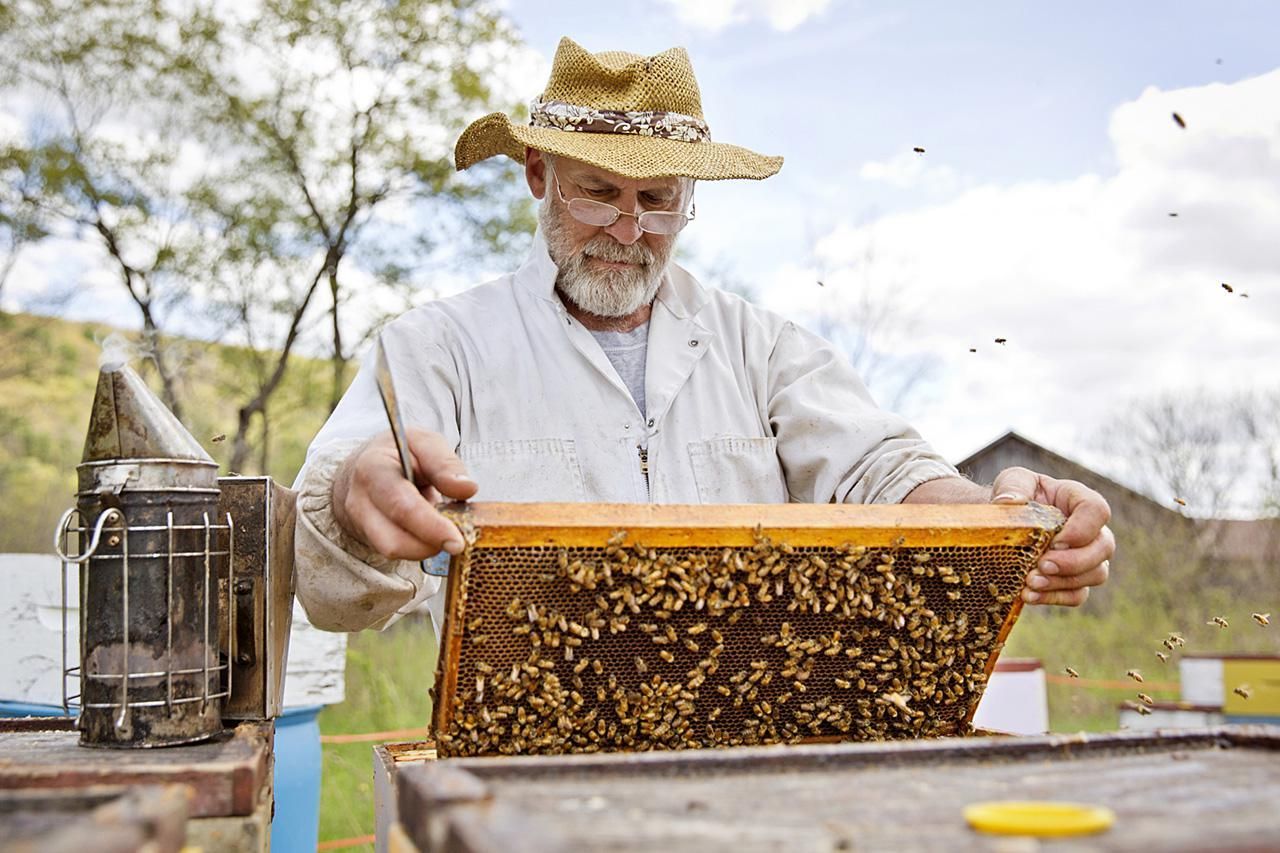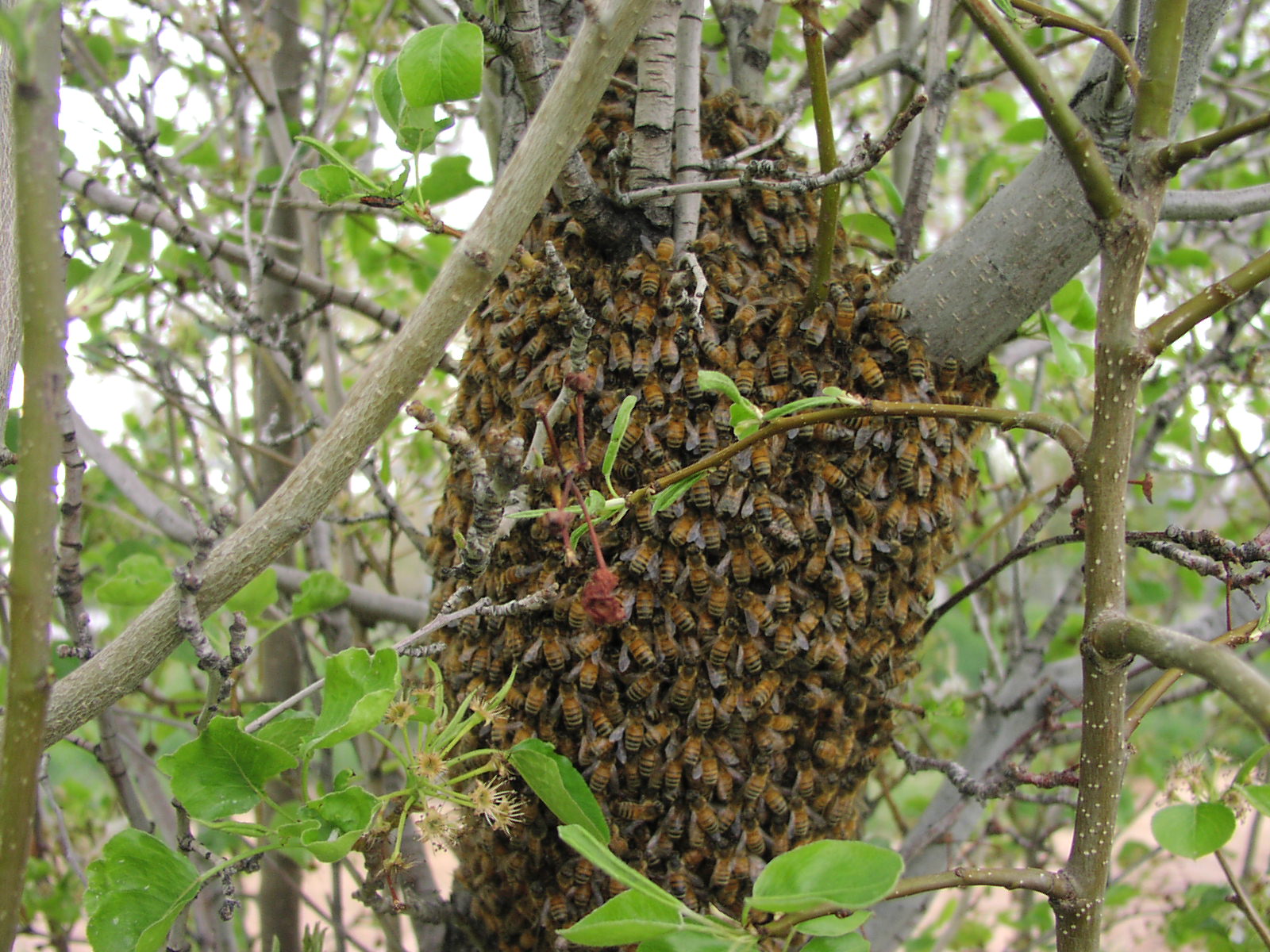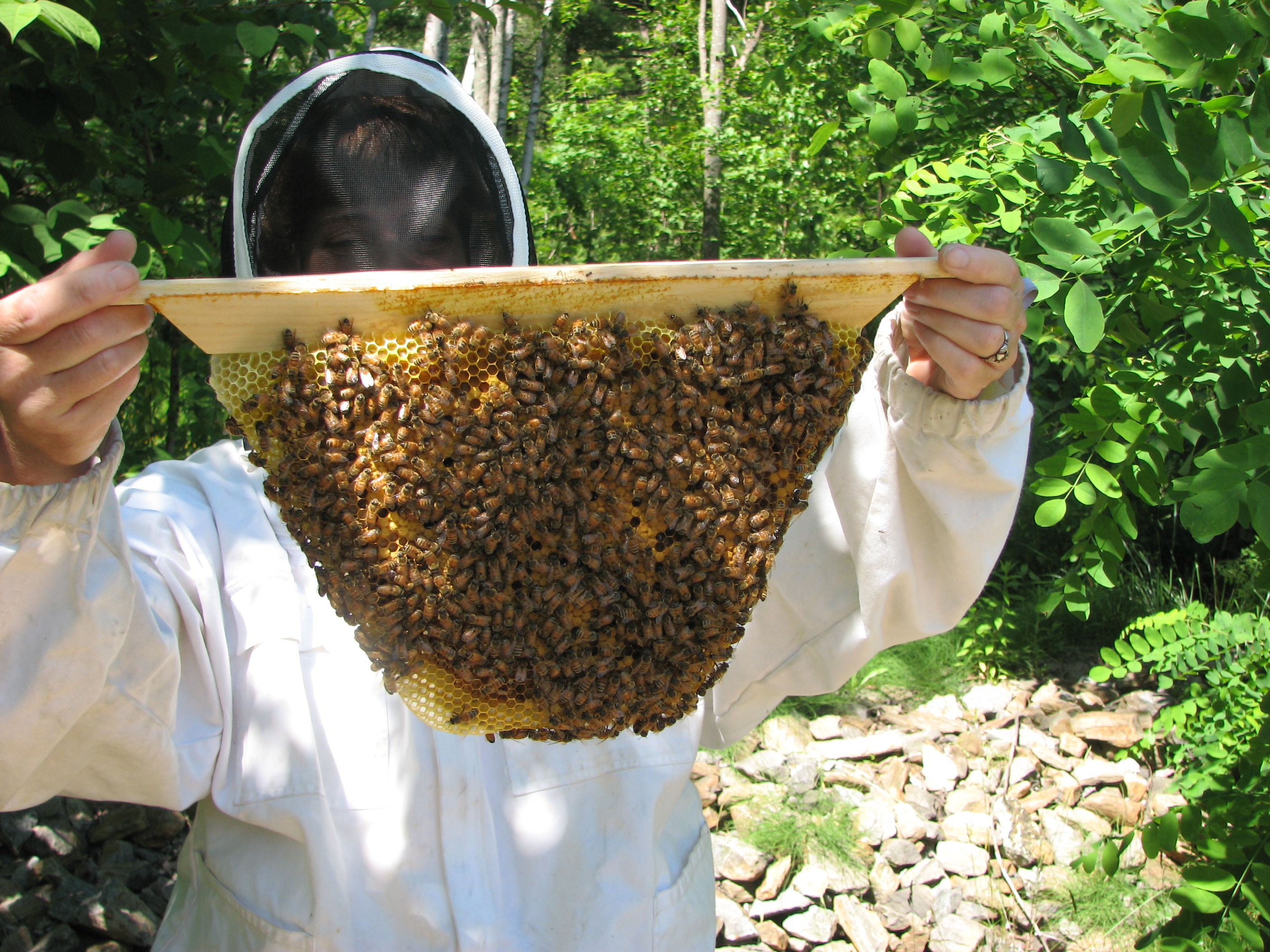This post is part of the “Bee Love” series about 3rd generation millenial beekeeping and CCD.
You’ve “always” considered beekeeping. It seems cool. You like the idea of it, but where do you get those hazmat-like suits? Isn’t it expensive? Where do you find the equipment? Never mind. You’re not “brave” enough. You couldn’t do it. What if you get stung?
MYTH #1: Beekeeping Is Dangerous/Scary

Yeah, beekeeping is not as intimidating as it looks, actually.

If you have the ability to lift a wooden box filled with honey, you have the ability to keep bees. As I mentioned in previous posts, bees are generally harmless. They don’t sting unless provoked and as long as you’re smoking them, they won’t attack you.
Swarms are not, according to television, a crazy bee attack. Bees swarm when they have outgrown their hive or they need a new queen or they just don’t like their location and they want to move someplace nicer, maybe Los Angeles or Texas. Well, they don’t migrate, but they may want to move sometimes. So stop picturing swarms as crazy bee attacks. I’m looking at you, Hollywood.


And stop picturing perfectly white hazmat suits. I do not even own one. I just own an old hat with a screen that I got from my grandfather…and I barely use that.
Onto MYTH #2: Beekeeping Is Expensive
The word “expensive” is different for everyone based on how you spend your time and how much money you make, but overall, for most everyone, no beekeeping is not expensive. Even if you do it all wrong, it won’t cost you more than $500. You can make beekeeping as expensive as you want, too. Go ahead and buy 12 hives. Give them a bee playground. No one is stopping you, especially not me.
We spent… a little over $200 tops on everything and we bought extra equipment we didn’t even need. The bee nuc itself was about $150~, boxes with frames were $30~ each (we only bought one. The other, along with a roof, top cover, bottom board, and stand we got for free from a local beekeeper). Queen separator was $2 and we didn’t even need it this year. I got a smoker, hive tool, and hat for free from a local beekeeper as well. We also spent about $15 on a new hive stand and new bottom board because the ones we got were falling apart and slightly moldy (mold = not good for bees or humans, obviously).
The trick is to meet a beekeeper and have a beekeeping mentor for when you get started. Even if you don’t know a single person where you are (if you live in Antarctica, you’re out of luck. I’m sorry), you can still go online and find the nearest beekeeping club. Reach out to them via phone, email, whatever or just go to a meeting. You’ll want to do this very early – think Jan/Feb (also when you want to order your bees) so you’ll be prepared come May. Beekeeping is definitely a social hobby. Even though a lot of what you’ll be doing is solitary, you’ll meet good people along the way. My grandpa thinks all beekeepers are good people. Considering they are helping save the environment, I’d have to agree.
Anyway, a beekeeping mentor can/will give you or find you decent equipment to get started, usually for free. They can let you borrow/have tools they already have. I’m working with two former beekeepers, so this is a lot easier for me. They both want to pass the torch onto us youth (and I will gladly accept it).
MYTH #3: Beekeeping Hurts Bees
Here is the truth and nothing but the truth: Yes, a few bees will get hurt in the process, most of the time (I try my hardest not to hurt a single bee/barely open their hive out of fear that I will). Every time you open the box, you risk hurting bees. I’m a bit anal about that and sit for sometimes hours gently brushing each bee away and willing them to go back into the hive/not hang out on the edge where I’m about to place the roof. However, it doesn’t really matter because single bees die all the time.
At this point, every bee I got from the original nuc is most likely dead, and that’s fine. Insect lives are different from human lives. Unlike humans, bees operate as a hive. Their genetics are very different and that makes a single bee life barely worth anything compared to the health of the entire hive – think fingernail or a piece of hair is lost. That said, if you need to add another box to keep your bees healthy and happy, it’s worth risking one or two bee deaths for the hundreds that live in the hive. They’ll probably make more tomorrow anyway. Literally every moment in bee world is about keeping everyone fed, finding pollen, and all of that to make more bee babies and continue to have a healthy hive. It’s really, really cool.
Considering hive mentality and the overall environment, keeping bees is helping the bees. Adding a helping human hand to the bee world, saving them from potential dangers by informing your neighbors about neonicotinoids and planting awesome flowers for them to pollinate is helping the bees thrive. In turn, you’re helping the environment, your neighbors, animals, plants (we have more pears and apples than we ever had ever), and yourself by keeping bees.
Got any more myths or questions about beekeeping? Ask in a comment below or email me at barefootaya@gmail.com. I may make a second one!
Related Content:
- DIY Screen Bottom Board | Abernathy’s Rabbitry
- The BeeBox |Beehappy
- Have These Kids Found a Way to Kill Varroa? | Bad Beekeeping Blog
Photo Credit:
- The Shoppers Weekly: Palestinian beekeepers collect honey at a farm in Rafah in the southern Gaza Strip…Palestinian beekeepers collect honey at a farm in Rafah in the southern Gaza Strip, April 9, 2013. REUTERS/Ibraheem Abu Mustafa (GAZA – Tags: SOCIETY)
- tqn.com
- Honey Bee Heroes
- Honey Bee Swarm Removal


1 thought on “BL: 3 Beekeeping Myths”